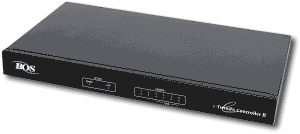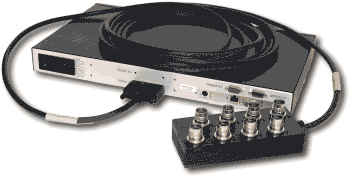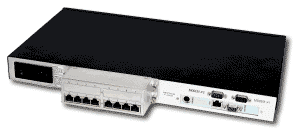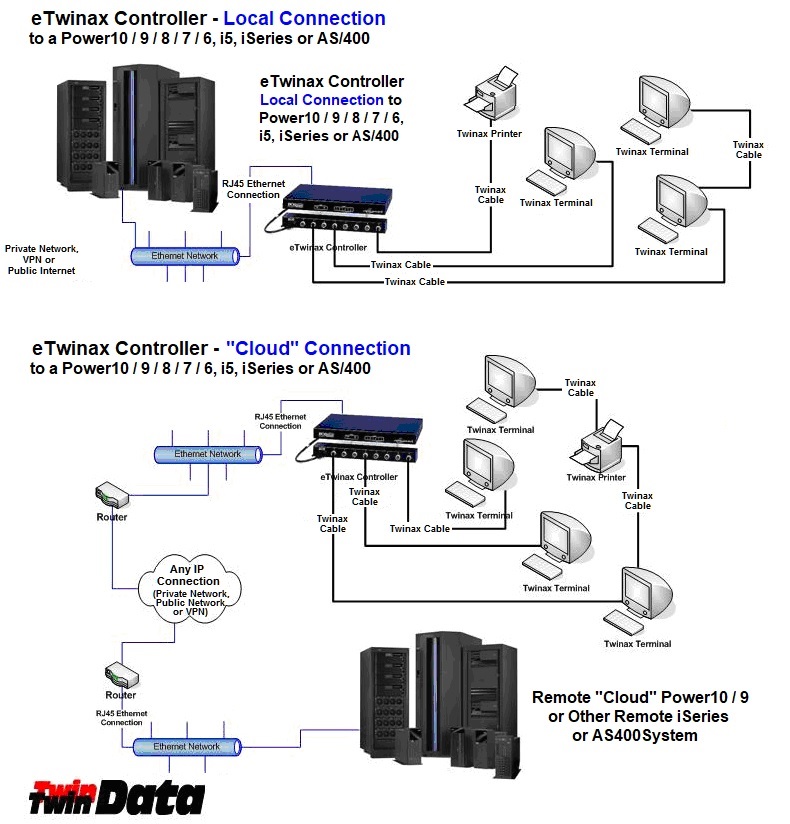|
|
|
|||||||||||||||||||||||||||||||||||||||
|
Devices Supported |
||
|
Ports |
4600 Series -
8
Twinax Host Ports |
4800 Series -
8 Twinax Host Ports
|
|
Each
Host Port will support up to a
maximum of
7 devices using any standard Twinax
address (0, 1, 2, 3, 4, 5, 6) up to the total
number the controller can support across all Twinax Host Ports
|
||
|
Number of |
Model 4691
(eTwinPrint) |
1 Twinax Printer |
|
Displays |
Partial List - 5251, 5291, 3179-2, 3180, 3196, 3197C, 3197D, 3476, 3477, 3486, 3487, 3488 and compatibles by Decision Data, CLI, I-O, Memorex-Telex, etc. (not all features are supported such as shared addressing, mouse support, imaging, etc. |
|
|
Printers |
SCS Printers - IBM 3812-1, 4214, 5219, 5224, 5225, 5256, 5262, 6262, 6400, 6500, Printronix P5000, P6000, P7000, P8000 and compatibles |
|
|
IPDS Printers - IBM 3812-2, 4224, 4230, 4234, 4247, 6400, 6500, Printronix P5000, P6000, P7000, P8000 and compatibles |
||
|
Other Printers - Most printers and printing devices such as thermal printers, card printers, etc. with built in Twinax interfaces or external Twinax interface protocol converters |
||
|
Workstations/PCs |
Supports all PCs with Twinax 5250 emulation (TDLC) and BOS, CompuMaster, NLynx, IBM or IBM-compatible Emulation Cards |
|
|
Host System Requirements |
||
|
AS/400 Operating System |
OS/400 V3R2 or higher |
|
|
AS/400 Internal Features |
AS/400 Ethernet LAN Connection |
|
|
The diagram below illustrates typical Local and
Cloud/Remote installations. This diagram is using Twinax cabling.
The same information applies to installations using Active Star
Twinax-to-RJ45 or RJ11 Hubs and Twinax to RJ45/RJ11 Balun connectors. |
|
|
Purchase On-Line
All "ADD TO CART"
models are currently in stock as of .
These prices are limited to our current inventory.
These refurbished models are a great solution to have as an On-Site spare.
Please call us at 800-597-2525 or 1-908-855-8100 to discuss your application or if you have any questions.
Information Request Form
eTwinax Controller Information
eTwinax Information Request - New 062218
RJ45 Host Port Option (e-TwinStar) Eliminates Need for Active Star Hubs
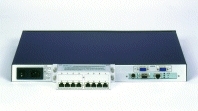 |
|
Rear
view of e-TwinSt@r Controller |
The e-Twinax Controller now has an optional model that includes a built-in unit featuring 8 (or 16) RJ45 sockets. Twinax devices working over CAT5 lines are connected directly to the Controller, saving the cost of an active star hub and eliminating the need for power sources and additional space in the communications closet, as well as the extra set-up and maintenance time. The RJ45 Ports of this option operate just as a Twinax port with an RJ45 Balun attached to it.
If you need to connect more Twinax Devices than the number of physical ports on an e-Twinax Controller, please read the explanation in the next section. The e-Twinax Controller model must be able to support the number of devices you need to connect.
The e-TwinStar (4800 Series) is available in models with support for 8, 16, 28, 56 or 112 Twinax addresses/devices. The 4800 Series is fully upgradeable from one model to the next allowing for growth from 8 to a full 112 device support. The 4800 Series also supports connection of the 8-Port Twinax Brick as the e-Twinax 4600 Series as well as the IBM 8-Port Twinax Brick from your existing Internal Twinax Workstation Controllers.
Upgrades are made by simple entering a new software key in the configuration section of the e-Twinax. You can upgrade remote locations by accessing the upgrade portion of the configuration over your WAN. Upgrading is done while the controller is in full operation. There is no need to have those users connected to it brought down. This eliminates the need other controllers have to bring them down while increasing their device capacity or adding options.
Explanation of Device Support
for the eTwinax and RJ45 Ports of e-Twinax Controller
As with the standard AS/400 8-port "Twinax Brick" from the Twinax Workstation Controller, each Host Port (Twinax or RJ45) of the e-Twinax will support up to a maximum number of 7 device addresses (0, 1, 2, 3, 4, 5, 6), up to the maximum number of devices the particular model controller will support. This convention holds true to all Twinax or RJ45 Host Ports of S/36, S/38, AS/400, iSeries and all IBM, Decision Data, I-O, Idea, and Perle Remote Controllers except for the very old 5251-12 and 5294 controllers that only supported a maximum of 4 addresses per Host Port.
For example, an IBM 5394-01B Controller has three Twinax Host Ports. Three ports with 7 devices each would total 21. The 5394-01B only supports 16. You can distribute those 16 device addresses across those three ports however you see fit. That could be 7 on the first port, 7 on the second port and 2 on the third port. You could also have 6, 6 and 4 or any other combination that totals 16 device addresses with a maximum of 7 on any one port.
Another example is the 4616 (Twinax Host Ports) and 4816 (RJ45 Host Ports) of the e-Twinax Controllers. Both of these models will support 16 Twinax addresses/devices but only have 8 physical ports. Using the same logic as with the 5394-01B example, you can connect devices to ANY of these 8 ports as long as the total number of addresses used is 16 or less. For example you could use the same 7, 7, and 2 on the first three Host Ports as with the 5394. Being these models have 8 Host Ports, you could also put 2 devices on each port for a total of 16. You could also have 4, 4, 4 and 4 on four of the 8 Host Ports or any other combination that totals 16 device addresses with a maximum of 7 on any one of the 8 ports.
If you need to connect more physical devices than the number of ports you have two options.
First, you can "cable-through" your Twinax devices from one to the next using actual Twinax cables. Using this method you can connect up to 7 devices to a single Host Port. If you are using multiple session terminals, the number of physical devices would be less as each Host Port will only support 7 addresses.
Second, you can add a Twinax-to-RJ45 Active Star Hub such as the IBM 7299 Active Star Hub to your setup. These Active Star Hubs connect to one of the controllers Host Ports either by Twinax Cable or Category 5 (CAT5) cable, and expand the single port to 7 RJ45 ports corresponding with the device addresses available on that port of 0, 1, 2, 3, 4, 5, and 6. This is the same whether the e-Twinax Controller has Twinax Host Ports or RJ45 Host Ports. In this implementation each Twinax Device would be required to have a Twinax-to-RJ45 Balun on it to allow connection with a CAT5 cable.
The RJ45 Host Ports of the e-Twinax Controller are operationally the same as a Twinax Host Port with an RJ45 Balun attached to it.



